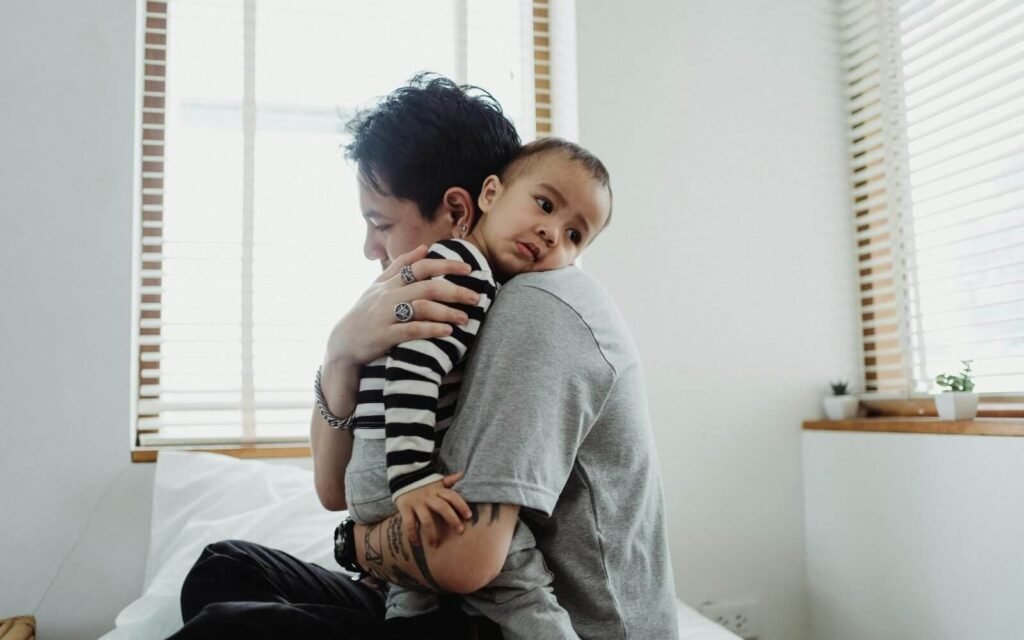Late Bedtime Effects on Children: What Caring Parents Should Know in 2025

Late Bedtime Effects on Children are more serious than many parents realize.
Is your child staying up later at night than you’d like? You’re not alone. Many parents struggle with bedtime routines, unsure if a slightly later schedule really matters.
But here’s the truth—late bedtime doesn’t just make mornings harder; it can disrupt your child’s entire circadian rhythm. Whether it’s a toddler, a school-aged child, or a month-old baby, sleep timing plays a crucial role in development and health.
In this article, we’ll explore how late bedtime affects your child’s health, what warning signs to watch for, and how to reset their sleep schedule—step by step. You’ll also hear what top researchers like Carskadon, Khalsa, and LeBourgeois have discovered about pediatric sleep.
Why This Matters: Quick Takeaways – Late Bedtime Effects on Children
- Late bedtime disrupts the circadian rhythm and nighttime sleep quality.
- Sleep deprivation, even when kids sleep later in the morning, can lead to behavior, mood, and learning issues.Pediatric sleep experts recommend a consistent bedtime to maintain a healthy sleep pattern.
- Kids who are sleep deprived may have more daytime meltdowns, lower energy, and poor focus.
- Even shifting bedtime earlier by 15 minutes can improve sleep habits and physiological recovery.
1. Why Sleep Timing Is So Important

Your child’s sleep isn’t just about quantity—sleep duration—but also when they sleep. The body’s circadian clock and melatonin levels follow a natural cycle. Disrupting this with a late bedtime can lead to:
- Less deep sleep, even if they catch up on sleep later.
- More wakefulness in the middle of the night.
- Disrupted sleep pressure, making it harder to fall asleep the next night.
Research published in the Journal of Clinical Endocrinology and studies like those by Akacem and Horváth show that light at night and delayed sleep can suppress melatonin, disrupting the sensitivity of the circadian system to evening bright light.
2. The Real Impact of a Late Bedtime

Being part of the late bedtime group has more consequences than just sleepy mornings:
a. Sleep Restriction and Poor Sleep Quality
Even if your child sleeps later in the morning, they may not get enough sleep due to fragmented nighttime sleep. The result? Insufficient sleep and groggy mornings. Understanding sleep training techniques for babies can help address these issues early on.
b. Behavioral and Emotional Challenges
Overtired children may seem hyperactive, not sleepy. Their awake time in the middle of the night increases, and overtiredness can build up, leading to tantrums and trouble paying attention. Building resilience in young children becomes especially important when dealing with sleep-related behavioral issues.
c. Academic and Learning Struggles
Sleep-deprived kids can’t focus well. Their brains don’t process and retain information efficiently, especially during daytime learning. Early language development tips can be particularly affected by poor sleep patterns.
d. Health Risks from Sleep Deprivation
Long-term sleep deprivation can weaken the immune system, increase the risk of obesity, and cause other physiological problems, including links to obstructive sleep apnea.
e. Sleep Problems Multiply
Sleep problems tend to snowball. When a baby goes to bed too late or naps irregularly, it throws off the whole family’s sleep pattern. If you’re dealing with a little one waking up every hour, understanding proper sleep timing becomes even more critical.
3. Red Flags You Shouldn’t Ignore

Wondering if your child is getting enough sleep? Watch for:
- Trouble waking up at morning wake
- Falling asleep in cars or classrooms
- Big mood swings or increased clumsiness
- Longer time to fall asleep at night
- Night wakings and trouble resettling
- Complaints of being tired despite long hours in bed
If you see these signs, your child may be experiencing acute sleep deprivation or developing chronic sleep problems. For toddlers specifically, learning how to get toddler to stay in bed can be a game-changer for establishing healthy sleep patterns.
4. How Much Sleep Does Your Child Really Need?

Here’s a handy guide based on Sleep Foundation and meta-analysis findings:
| Age Group | Average Sleep Needed | Ideal Bedtime |
|---|---|---|
| 1–2 yrs (Toddlers) | 11–14 hours | 6:30–8:00 PM |
| 3–5 yrs | 10–13 hours | 7:00–8:30 PM |
| 6–13 yrs | 9–11 hours | 8:00–9:00 PM |
| 14–17 yrs | 8–10 hours | 9:00–10:30 PM |
Important: Longer sleep isn’t always better if it’s misaligned with your child’s natural chronotype and circadian rhythm. Understanding wake windows age guide can help you determine the right sleep timing for your child’s developmental stage.
5. Simple Tips to Improve Sleep Habits

Getting your child’s sleep back on track doesn’t need to be complicated. Follow this sleep advice for babies and toddlers (and big kids too!):
a. Put Your Baby to Bed Before They’re Overtired
When baby goes down too late, they get a second wind. That makes it harder for them to fall asleep and stay asleep. Learning about wake window baby schedule can help you identify the perfect timing.
b. Shift Bedtime Earlier Gradually
Try to move bedtime later by only 15 minutes if needed, but aim to eventually get to an early bedtime that fits their age. If you’re dealing with sleep issues during travel, check out our wake window travel tips for maintaining consistency on the go.
c. Create a Calm Routine
Start winding down hours before bedtime with activities like:
- Bath time – Consider establishing a calming baby bath routine to signal bedtime
- Books – Having chapter books for first graders ready can make reading time more engaging
- Dimming the lights (minimize exposure to light)
- Gentle cuddles or quiet time
For toddlers, implementing a structured pre-nap routine for toddlers can also improve nighttime sleep quality.
d. Avoid Bright Light at Night
Even a tablet can interfere with the circadian system to evening bright light. Create a soothing, dark bedroom environment. Consider setting up a toddler floor bed to create a calming sleep space.
e. Balance Daytime Sleep
An extra nap for a toddler may help, but too much daytime sleep can delay the ability to go to bed at night. Watch the balance. For twins, wake window twins management requires special attention to individual sleep needs.
6. When Should You Call a Pediatrician?

Sometimes, sleep training and routines aren’t enough. Call your pediatric expert if:
- Your child doesn’t sleep even with good habits
- Snoring or breathing issues suggest obstructive sleep apnea
- You notice extreme behavior changes from insufficient sleep
- Sleep struggles go on for weeks without improvement
A professional trained in pediatric sleep can help your family find peace at night. Consider also reviewing wake window troubleshooting tips before seeking professional help.
Summary
Your child’s health depends on more than just how much sleep they get—it’s about when and how they sleep. A late bedtime may feel harmless, but it creates real problems with behavior, growth, and learning. Understanding the role of the circadian rhythm, avoiding too much light at night, and building consistent routines can all support healthier, happier sleep. No matter how bad it feels now, every child can bounce back with the right changes.
For parents looking for comprehensive guidance, exploring effective time management for parents can help you establish better family routines that support healthy sleep patterns. No matter how bad it feels now, every child can bounce back with the right changes.
Frequently Asked Questions
How Does Light at Night Affect My Child’s Sleep?
Light at night suppresses melatonin, the hormone that helps kids fall asleep. Reducing exposure to light before bed helps the circadian clock function properly.
Should I Wake My Child If They Sleep Later in the Morning?
Yes, if they consistently sleep later in the morning, it can shift their circadian system. Stick to a regular wake time to stabilize their sleep pattern.
What’s the Best Age to Start Sleep Training?
You can begin gentle sleep training as early as 4–6 months. The key is consistency and age-appropriate routines, as suggested in advice for babies and toddlers.
Can a Nap Fix Bad Nighttime Sleep?
Sometimes. An extra nap can reduce sleep pressure, but too much daytime sleep can delay bedtime. Watch your child’s awake time carefully. Understanding proper wake windows night weaning can help balance day and night sleep.
What If My Child Is Naturally a Night Owl?
That might be their chronotype, but school and daytime activities still require a shift. Gradually adjusting bedtime earlier and reducing light and darkness confusion can help.





